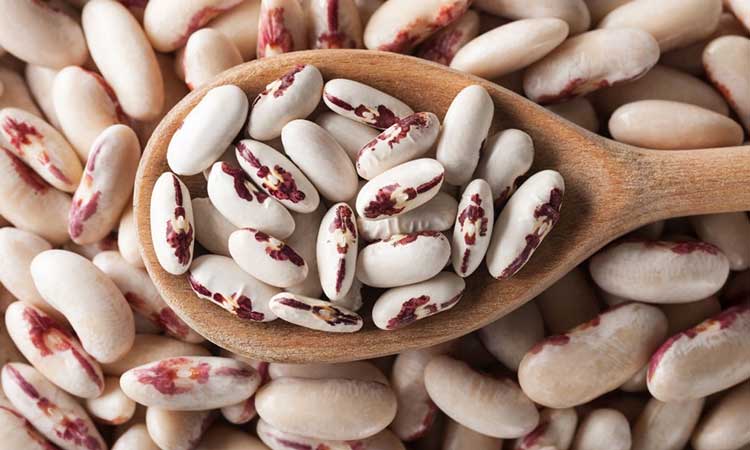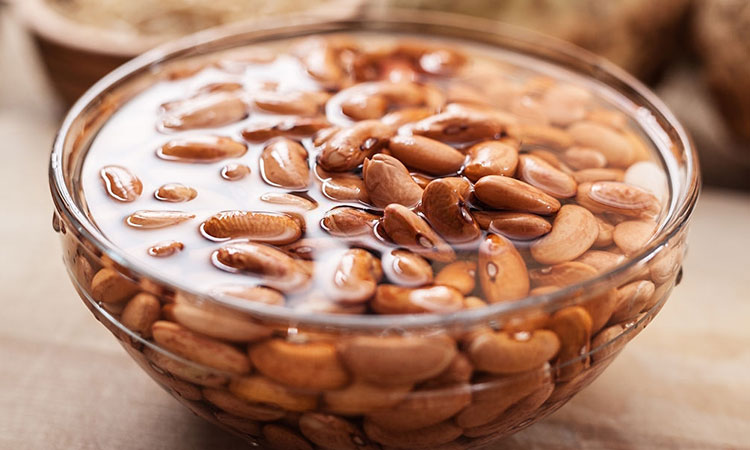It is always important to eat a balanced diet and the same is even more crucial when you are pregnant because what you eat acts as a source of nutrients for the baby to be born. When you are pregnant, you must concentrate on eating foods that are rich in iron, folate, calcium, vitamin D and proteins. Eating beans during pregnancy is one of the best options for healthy food as it comes with a lot of nutrients.
As a pregnant woman, your body is a home for the little life inside you. Hence it is important to give your baby healthy development by eating the right food. In this way, you and your baby can remain healthy and avoid pregnancy complications.
In this article, we will tell you why you need to incorporate foods like green beans during pregnancy as they are a rich source of vitamins A, C, and K, and folic acid along with fiber.

Is It Safe To Eat Beans During Pregnancy?
Any edible seed belonging to the legume family is known as beans. According to a source, it is mandatory to include beans during pregnancy as it comes with all the nutrients that are required for healthy development of the baby.
Consuming legumes/ broad beans during pregnancy helps expecting mothers to meet the daily requirements of vitamins, minerals, and other nutrients that are helpful for a fetus’ growth and development, says a source.
Beans contain natural nutrients and are also rich in dietary fiber. You need more vitamins and minerals to help your baby grow and maintain your health as your body is working hard at supporting both of you.
Related Reading: 21 Pregnancy Superfoods To Include In Your Pregnancy Diet
Legumes such as baked beans, cannellini beans, chickpeas, lentils, and soybeans must be a part of your pregnancy diet to keep your pregnancy safe.
Calculate Due Date With LMP
Nutritional Profile Of Beans
Beans have folic acid, which is essential for pregnant women. They are also high in iron, which is used to create more red blood cells that carry oxygen throughout your body and to your baby. Iron requirements double during pregnancy and low iron leads to complications such as anemia.
A few bean varieties include:
- Lima beans
- Black beans
- Black-eyed peas
- Soybeans
- Kidney beans
- Garbanzo beans
- Navy beans
- Pinto beans
- Red beans
Understanding the nutrition of a pregnant woman is very significant. Hence, when you make your pregnancy diet chart, you must design a diet that is full of nutritious foods which pack in all the vitamins, minerals as well as protein.
According to a source, dry edible beans are nutrient-rich foods as they contain a variety of vitamins, minerals, and other nutrients while providing a moderate number of calories. Beans are a rich source of soluble and insoluble fiber.
Related Reading: Eating Salads During Pregnancy- Importance, Benefits, And Precautions
Benefits Of Eating Beans During Pregnancy

Beans are rich in the necessary nutrients which are vital for the baby inside you to grow at a healthy pace. Not only that, they are cheap and easily available and can be a part of your daily staple.
French beans during pregnancy help to tackle problems like constipation as beans are rich in fiber. It is important to include beans during pregnancy as they are a rich source of zinc, copper, manganese, selenium, and vitamins B1, B6, E1.
A healthy eating pattern is very important during pregnancy. Good nutrition plays a key role in the health of both mother and baby. It is important to choose a variety of healthy foods, maintain healthy weight gain during pregnancy, and stay food-safe and hence we recommend you to include beans during pregnancy owing to their health benefits.
Listed below are the benefits of beans during pregnancy.
1. Promotes heart health
Eating beans during pregnancy has been seen to improve the conditions of the heart and for maintaining good heart health. Minerals like potassium, magnesium, and iron are crucial during the pregnancy phase and are adequately available in beans.
Infact, the iron available in the beans is good for the production of red blood cells and makes the heart work a bit easier2 Similarly, potassium helps reduce sodium levels that affect the cholesterol level. Also, beans come with soluble fibers that help remove the plague or artery blockage if any.
2. Rich in protein
Protein plays a vital role as it is critical for ensuring the proper growth of a baby’s tissues and organs. According to a study, you require about 70g-100g of protein per day depending on the trimester.
There are 20 amino acids out of which nine of these are essential. Soybeans contain all nine amino acids and make them a perfect food for pregnancy. Beans make an excellent source of protein for vegetarians and vegans also; they are low in calories.
Related Reading: Top 10 Protein-Rich Foods For Pregnancy
3. Beans are rich in antioxidants
Antioxidant needs during pregnancy are very high. Our body’s cells produce free radical modules that could cause damage when robbing the cell’s oxygen to perform. Antioxidants help to neutralize the negative effects of these free radicals and therefore combat oxidative damage in our cells.
Beans are a rich source of polyphenols, an antioxidant type that is vital during pregnancy and you can find the studies here.
4. Decreases risk of cardiovascular disease
During pregnancy, your heart works hard by pumping that extra blood to you and your baby. The extra pressure could lead to complications such as blood pressure, diabetes.
According to a study, there was a decrease in cardiovascular risk for people who replaced meat proteins with beans.
We know high cholesterol is a risk factor for high blood pressure and heart attack. Research proved how dried beans help to lower the risk of cholesterol.
Related Reading: Drinking Red Wine During Pregnancy- Pros And Cons
5. Beans helps lower diabetes
Gestational diabetes is common during pregnancy. Beans help stabilize blood glucose or even prevent diabetes as they are a good source of fiber, which helps lower blood glucose3.
Consuming high-fiber food helps to reduce the existing blood sugar levels for people who already have the condition.
Risks And Precautions While Eating Beans During Pregnancy

Beans during pregnancy are not just delicious food but are also full of nutrients. However, not every food is a safe food during pregnancy as it could be harmful to you and your baby depending on many factors.
Keeping a healthy lifestyle throughout pregnancy, before and after, is important for both baby and mother. A balanced eating plan with a variety of foods can provide pregnant women with enough nutrients for pregnancy.
Related Reading: Foods To Avoid During Breastfeeding
Although beans are a healthy food, some contain toxins and can cause a few risks for pregnant women as discussed below.
1. Beans can cause migraines
According to the National Headache Foundation, certain beans may contain a substance known as tyramine. This can cause migraine which can make it uncomfortable for pregnant women.
Also, according to FARE (Food Allergy, Research & Education), the peanut is one common legume that can cause allergy. Hence, discuss with your doctor in case you are planning to include it as part of your pregnancy diet.
2. Beans can raise blood pressure
Fava beans can interact with your medication and raise blood pressure, according to the National Headache Foundation, especially if you are on monoamine oxidase to treat depression.
Related Reading: Pregnancy After 30 – 8 Risks And Benefits
3. Beans can interfere with vitamin absorption
Beans like soy contain substances that can interfere with the absorption of beta carotene and vitamins B12 and D, says a study from the U.S. Department of Agriculture.
You can compensate for this vitamin loss by consuming plenty of fresh fruits and yellow or dark green veggies.
Related Reading: 15 Fruits Not To Eat During Pregnancy
4. Beans can trigger gout
Foods such as dried peas, beans, lentils, and other legumes contain high purine content which is not advised for gout4.
As the purine’s content in the beans can increase levels of uric acid and can hasten a gout attack it is better to consult your doctor before consuming beans during pregnancy.
5. Beans can make you gassy
Bloating and flatulence are common pregnancy problems, and consuming beans during pregnancy can. According to Cleveland Clinic, beans cause an uneasy flatulence problem, particularly dried beans, lentils, and peas.
Precautions Of Eating Beans During Pregnancy

We advise you to follow the below precautions while consuming beans during pregnancy to avoid any adverse side effects.
- To avoid gas built up by beans, frequently change the water in which the beans are soaked
- Always rinse canned beans
- Adding herbs like lemon balm, fennel might also help prevent flatulence caused due to beans
- Eating fava beans can cause a condition called racism which could lead to anemia where red blood cells get destroyed
- Beans contain phytic acid which reduces the absorption of minerals
- A few varieties of beans can be toxic if they are undercooked. Make sure to cook beans thoroughly to get rid of their toxins
- Soaking and sprouting are beneficial while consuming beans during pregnancy
- To reduce the sodium content in canned beans, simply drain and rinse them before consuming or adding to recipes
Conclusion
Beans during pregnancy is a recommended food as it comes with all nutrients that your body requires. With the right cooking technique, the side effects of beans can be avoided.
Choosing a healthy and nutritious meal during pregnancy is always recommended for you and your baby. Since beans are a great way to get the low-fat, low-calorie protein as beans have the fiber and carbs mixed in, you can include this as a part of your daily pregnancy diet for a safe and healthy pregnancy.
